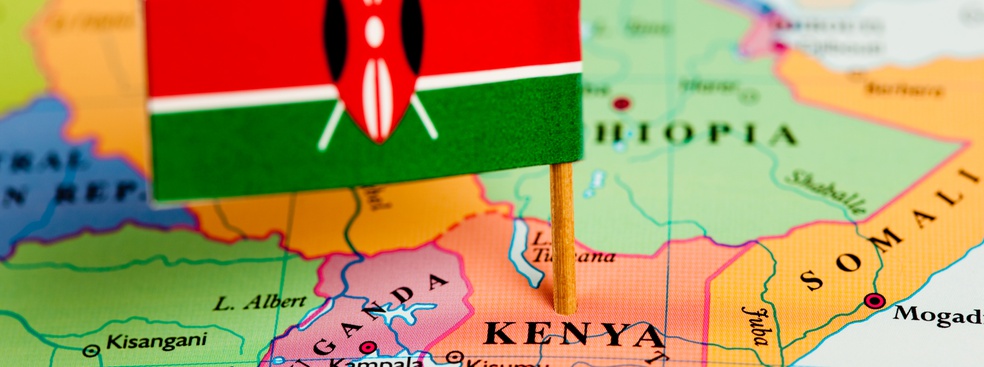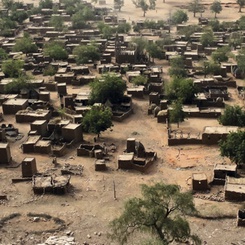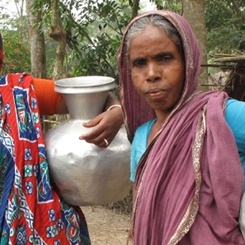Like the broader phenomenon of globalization, international terrorism operates based on its ability mobilize economic rents to finance an ideological rent on a global scale. From this perspective, while most have experienced these attacks as a rising up against that very system, what happened at Westgate actually fits within the logic of globalization.
From a western perspective, we do not agree with the fundamentalist interpretation of sharia and since the western perspective dominates the international system this is clearly lived like an ideological domination by Islamic terrorist cells. In this dominant vs. dominated opposition, the dominated seek to regain the upper-hand by combining ideological leadership with economic means.
In this sense, this latest attack in Kenya is both a message and a test. The Shebab are telling the Kenyan government and the world that their war in Somalia is far from over. Their demand is that Kenyan troops leave neighboring Somali soil and release prisoners.
Westgate: both a message and a test
Kenya’s population of 44 million is made up of 80 % Christian and 10% Muslim citizens. Its GDP is $42 billion US, making it the ninth African economic power. In addition to the African Union operations in Somalia since 2008, Kenya has mobilized its military to repel the Shebab which has represented a continuous threat to its northeast border. So the Westgate attack operates as a kind of test for President Uhuru Kenyatta and the capabilities of his new government which only took power in April.
This is not the first Shebab attack on Kenya: take for example the October 2011 attempt at a Nairobi nightclub. It must be said, however, that what happened at Westgate is different in its international implications: those impacted were primarily foreigners and the Kenyan middle class. The Shebab are trying to make a maximum number of victims for propaganda and recruitments, and to put pressure on the Kenyan government to respond to their demands.
This event is also unique in the fact that attackers include a variety of nationalities, including European. The group entered a public place, heavily armed, and demonstrated an intention to kill hostages. It is obvious that the Kenyan government was not prepared for this sequence of events and did not have sufficient information to organize a response in a timely manner, even if we know that the intelligence services had already been alerted.
We'll see in a few months how this response will continue vis-à -vis the Shebab cells established on Kenyan and Somali territories. But for the time being, a large majority of Kenyans are showing their gratitude today to Special Forces and their international partners who, despite confusion, managed to limit the number of victims.
The current challenge: to reassure local and international populations
Many people are coming out of the attack with shock and sadness because a loved one has been killed or injured. This emotion has been given increased importance by local authorities because the middle class has been directly affected, and the Kenyan government will feel increased pressure to propose solutions. Should scanners be mandatory at high-traffic buildings? Does Kenya even have the means to undertake the border security, surveillance and alert system improvements that are needed?
Furthermore, these security measures will need to be symbolically visible to reassure populations, especially tourists and foreign investors. This is after all a country that has dedicated into attracting foreign investment and protecting tourism. So far, the Shebab are not directly threatening other African or non-African countries.
However, the entire continent is even more aware of its many points of vulnerability. These vulnerabilities are not merely economic or social, as this kind of “economic terrorism " resulting from their dependence vis-à -vis developed countries for massive importations of goods and services, which, while sometimes allow local populations to maintain purchasing power, also weaken the industrial and economic wealth of the continent. They also involve issues of security, maritime piracy and terror as observed in Kenya, Mali, Nigeria and the entire gulf of Guinea.
Dealing with these terrorist challenges is not in the hands of any one country, but requires effective regional cooperation with those neighbors in the region that have the economic capacity. In a globalization where Africa does not occupy the top ranks, many Africans feel they suffer the effects of different forms of international confrontations: they suffer the social and environmental consequences of climate change more acutely than many other regions in the world.
In the case of terrorism, the continent is sandwiched between competing ideologies, democracy on one hand and fundamentalist religion on the other. Africa must navigate these ideologies in order to participate in globalization. Security issues and terrorism are indeed becoming a serious obstacle for development in Africa. The African Union has shown weakness in recent years but is building its capacities to ensure peace and security. This is a matter of life or death for most African states, but the institution still relies on foreign funding. If it could benefit from a more regular financial contribution from its member states, it could become more successful in building a secure future for the African people.



